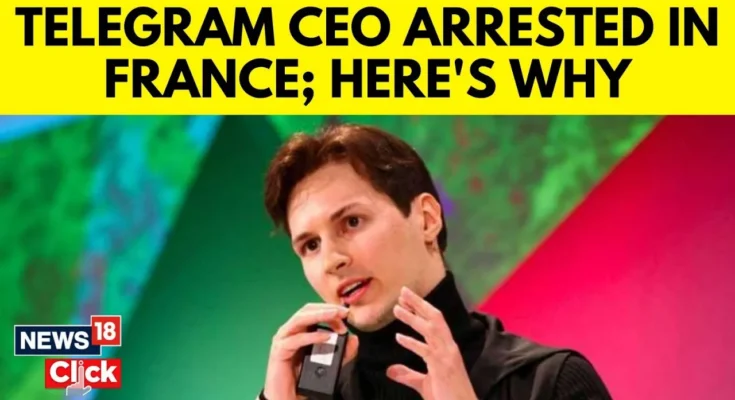Pavel Durov, billionaire founder and CEO of the Telegram messaging app, was arrested at the Bourget airport outside Paris on Saturday evening, TF1 TV and BFM TV said, citing unnamed sources. Telegram, particularly influential in Russia, Ukraine and the republics of the former Soviet Union, is ranked as one of the major social media platforms after Facebook, YouTube, WhatsApp, Instagram, TikTok and Wechat. It aims to hit one billion users in the next year.
Reason for Arrest: Pavel Durov was taken into custody earlier today by French authorities on charges related to alleged violations of French cybersecurity and privacy laws. According to sources, the arrest stems from Telegram’s purported failure to comply with French regulations requiring tech companies to better control and monitor content on their platforms. French officials accuse Durov and Telegram of not sufficiently addressing concerns over the spread of extremist content and misinformation within the app.
The French government has been particularly vocal about the need for tech companies to take stronger measures against the misuse of their platforms. The arrest comes amid broader global scrutiny over how social media and messaging apps handle sensitive and potentially harmful content. French Minister of Digital Affairs [Minister’s Name] expressed frustration over what is seen as Telegram’s lack of cooperation with regulatory requests, stating that the platform has been used to facilitate illegal activities, including hate speech and propaganda.
Durov’s Response: Pavel Durov has denied the charges, claiming that Telegram has always prioritized user privacy and has complied with international standards and local laws. In a statement, Durov criticized the arrest as politically motivated and an attempt to suppress free speech. His legal team is currently working to challenge the arrest, arguing that it violates principles of digital freedom and expression.
International Reaction: The arrest has prompted reactions from various tech industry leaders and privacy advocates. Critics argue that this move could set a concerning precedent for government control over digital platforms. The tech community is watching closely to see how this situation unfolds and what implications it might have for global tech regulations.


